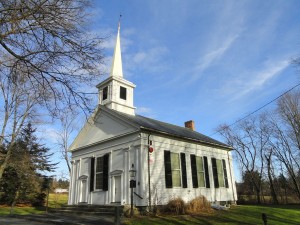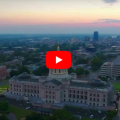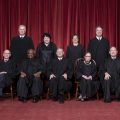 Recently the Arkansas General Assembly passed Act 975, the Religious Freedom Restoration Act. Many other states have established similar laws over the past two decades. Simply put, these laws say the state government cannot burden the free exercise of religion unless doing so furthers a compelling governmental interest—such as protecting children or public safety, and so forth.
Recently the Arkansas General Assembly passed Act 975, the Religious Freedom Restoration Act. Many other states have established similar laws over the past two decades. Simply put, these laws say the state government cannot burden the free exercise of religion unless doing so furthers a compelling governmental interest—such as protecting children or public safety, and so forth.
Over the years, I have heard opponents of these laws comment that religion does not seem to be suffering in Arkansas. Some people have asked me how much more religious freedom we need—after all, there’s a church on almost every street corner in many of our communities.
These comments hint at an underlying assumption: Religion is something a person does for an hour or two every week. It’s a belief and a church service—an intellectual exercise, and nothing more.
That’s a shortsighted assumption.
Faith isn’t a meeting you attend; it’s something meant to impact every aspect of your daily life. When the law treats religion like nothing more than an intellectual exercise, the actual exercise of religion comes under attack. It becomes OK to believe something, but not OK to act on that belief.
That’s what happened in Dallas, Texas, a few years ago. The city passed an ordinance against feeding homeless people on the street. The idea was if homeless people could not find food on the street, they would quit living on the street.
Naturally, this affected homeless ministries, and they sued the city. A federal judge ruled the city did not have a compelling interest at stake in the ordinance, and struck down the ban under Texas’ state Religious Freedom Restoration Act. Because Texas had a law protecting the free exercise of religion, these homeless ministries were able to continue serving the poor in their community.
Shouldn’t the First Amendment to the U.S. Constitution have been enough to address this? Well, yes, but the U.S. Supreme Court court has adjusted the First Amendment’s interpretation in the past 20 years. In Employment Division v. Smith, the court ruled “generally applicable” laws — like this city ordinance — could infringe religious freedoms. In a roundabout way, the decision changed the free exercise of religion from the freedom to do something to the freedom to believe something. State and federal governments have been trying to correct that adjustment ever since.
Opponents argue religious freedom laws are discriminatory or might create loopholes for criminals. Well, most states have a law or court ruling on the books to the effect of Act 975, and the federal government has had the federal Religious Freedom Restoration Act in place since 1993; no polygamist cult or criminal has used these laws to justify their actions, and I have not heard of any sudden spikes in discrimination because of state religious freedom laws.
There is a clear body of case law governing what is and is not protected under religious liberty. The problem is the government has not been content to leave religious liberty alone; it has chosen to erode some of that liberty over the past two and a half decades. State Religious Freedom Restoration Acts like Act 975 help stop that erosion.
Whether it’s Catholics being told they have to buy into healthcare plans that pay for abortion; seniors in Balch Springs, Texas, being told they cannot pray over their food at the senior center; pharmacists in Illinois being ordered to distribute abortifacients against their conscience; valedictorians being told to leave God out of their graduation speeches; or students being told they cannot wear religious clothing or jewelry, religious liberties are increasingly being infringed.
Without Religious Freedom Restoration Acts, the free exercise of religion is in danger of becoming an intellectual exercise only.





Deedra Branscum